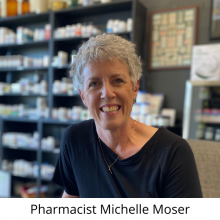How Do You Find Accurate Information on Low Dose Naltrexone (LDN)?
The question is you mentioned Facebook and there are many social media platforms out there where people can ask questions. There are some people that come to me and I'm sure they end up on our Facebook page where they have asked a question and they are not really that sure of the answer. There are people that give advice who know somebody that takes LDN and that person has told them. They don't actually have any personal experience or giving medical advice which is a complete No-No if you're not a medical professional. So what would you say about somebody who is trying to wade through all the conflicting information on social media to find the correct answer? What would you say? That is the million dollar question, right. You are right. There is tons of information out there and I don't even think that's an understatement. I mean there really is a ton of information and because Low Dose Naltrexone is being prescribed for that individual, that individual is going to have a very different response than even their identical twin quite honestly and there's so many reasons why.
We answer questions about fillers. Well this filler is great but this one is better. This one you should never use. Well that isn't necessarily true either because again when we're dealing with individuals it really has to do with that professional relationship between the prescriber and the pharmacist and the patient. That is what is most important anytime you ask a general question anywhere out there on social media. You're going to get a hundred thousand plus answers. Are any of them right? Yeah some of them are. Are any of them wrong?
Yep. A lot more of those are wrong. It's really developing those relationships and understanding where that individual or that organization is coming from.
What is their mission and their vision to educating the population and where are their sources coming from? In other words you know good news travels fast but bad news travels faster. If somebody has a poor response we’d ask why did they have a poor response. I mean they may state exactly why but is that the only reason? There could be a lot of other pieces underneath them. When someone says I have X issues will LDN work for me? Probably 100 percent of the time it's hard to know because LDN doesn't work for 100 percent of the people out there. I mean most of the compounding pharmacies are running around an 80 - 85 percent success rate but that's only because they're very careful about how they individualize that therapy for that patient and working directly with that prescriber. Fillers might be different. The capsule, what it's made out of might be different. The liquid base might be different. Do we use sweeteners? Do we use flavors? A lot of different things. When lay individuals, when the general public, starts to give advice I'm sure that's only under the best intentions. I don't believe a lot of people are answering questions maliciously. I hope not. I mean that would be terrible but again they're the general public. Are they well informed? A lot of people really are because they've really had to advocate for themselves you know and I'm sure this happened with you as well. When you have a disease state and you're just not getting answers, you're not making progress. You bounce from one doctor to the next, to the next, to the next, to the next and you're on this medication and that medication and pretty soon you've got this laundry list of medications you're toting around. This huge bag and you still don't feel any better than you did 15 years ago. You have to learn. You have to educate yourself so make sure that whatever sources you seek have their mission and vision very well stated and that they are unbiased. That they are providing the best quality information possible. That they've got a lot of great education behind them. That they're very well studied and that you ask additional questions.
Sometimes the first question is pretty general but then you have to follow it up with a bunch of other questions. For example: this one we see on the LDN Trust all the time. It's usually about fillers. Are microcrystalline cellulose or the brand name Avicel the best filler for a capsule or even a tablet? The majority of time it's great. It's considered inert. Does it work for everybody? Nope, not a hundred percent of the time. That's where the flexibility has to come in to again work with that individual to make sure that that Low Dose Naltrexone is going to work for that individual under these circumstances. It really is about education and making sure that they're very well informed.








